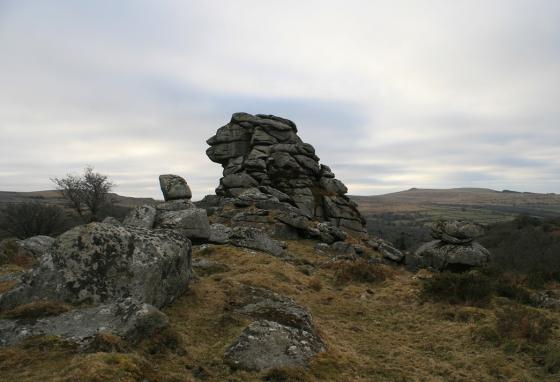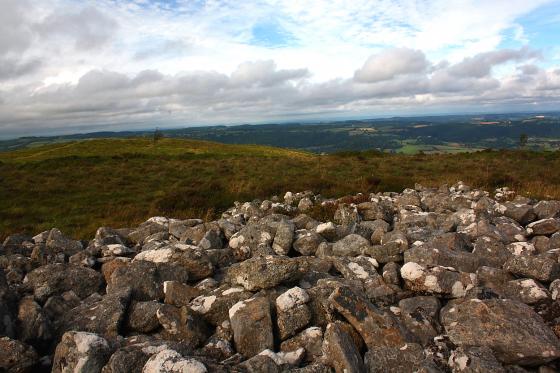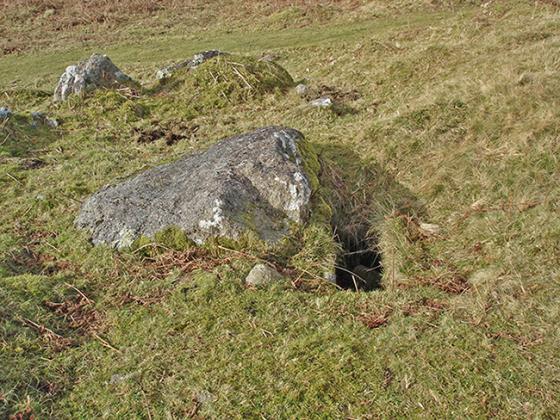
This standing stone marks the location of the circle, I think it’s an old gatepost as it’s in a old low wall, but it could have been an outlier pointing out the winter solstice? it’s the same size as the circle stones.

This standing stone marks the location of the circle, I think it’s an old gatepost as it’s in a old low wall, but it could have been an outlier pointing out the winter solstice? it’s the same size as the circle stones.

The southeast arc

Looking across the circle to Sittaford Tor.

Two stones and two stone holes? I think they could still be in there under the water and muck of ages, anyone know for sure?

Hoiking the tripod high overhead, looking south across the circle.

Looking east

Looking northwest

Thanks to Alan Endicott for refinding this stone circle, it is a prime candidate for restoration, but without stone holes to go by can it be done and more importantly was it ever really finished?


23 stones I think I counted and four murky stone shaped depressions.


Even with no stones still standing this place should still be sought out, its barely a half mile from the Greywethers over Sittaford Tor.

A couple of missing stones with Sittaford Tor in the background

Spot the stones! Monday was a perfect day for walking up to Sittaford from the Warren House Inn. Difficult terrain and the circle is hard to find without GPS coming from this direction, looks easy enough if approaching from Fernworthy Forest
AN undisturbed stone circle which has been buried in the peat since its abandonment in prehistory has been lovingly excavated.
Sittaford Stone Circle, discovered in 2008 by Alan Endacott, a local amateur archaeologist, appeared to have remained undisturbed. It was revealed by the actions of peat cutters in more recent centuries and then a moorland fire in 2008 enabled Alan to spot some of the stones poking out of the surface.
A stone circle which has remained undisturbed is highly unusual. Many of Dartmoor’s stone circles have been subjected to various degrees of disturbance, ranging from ‘mining’ of the sites for stone, to investigation by antiquarians and early archaeologists.
Dartmoor National Park Authority archaeologist Lee Bray said: ‘This lack of disturbance is one of the facts that makes the site special. That this hasn’t happened at Sittaford — as far as we know — makes the site of national significance as it has the potential to shed light on stone circles which is unclouded by the activities of intervening periods.’
The monument itself is located about 300m south west of Sittaford Tor at over 520m elevation, on the summit of the ridge separating the catchments of the North Teign and East Dart. It consists of 30 stones, all of which are currently recumbent, arranged in a circle with a diameter of in excess of 30m.....














































































































































































































































